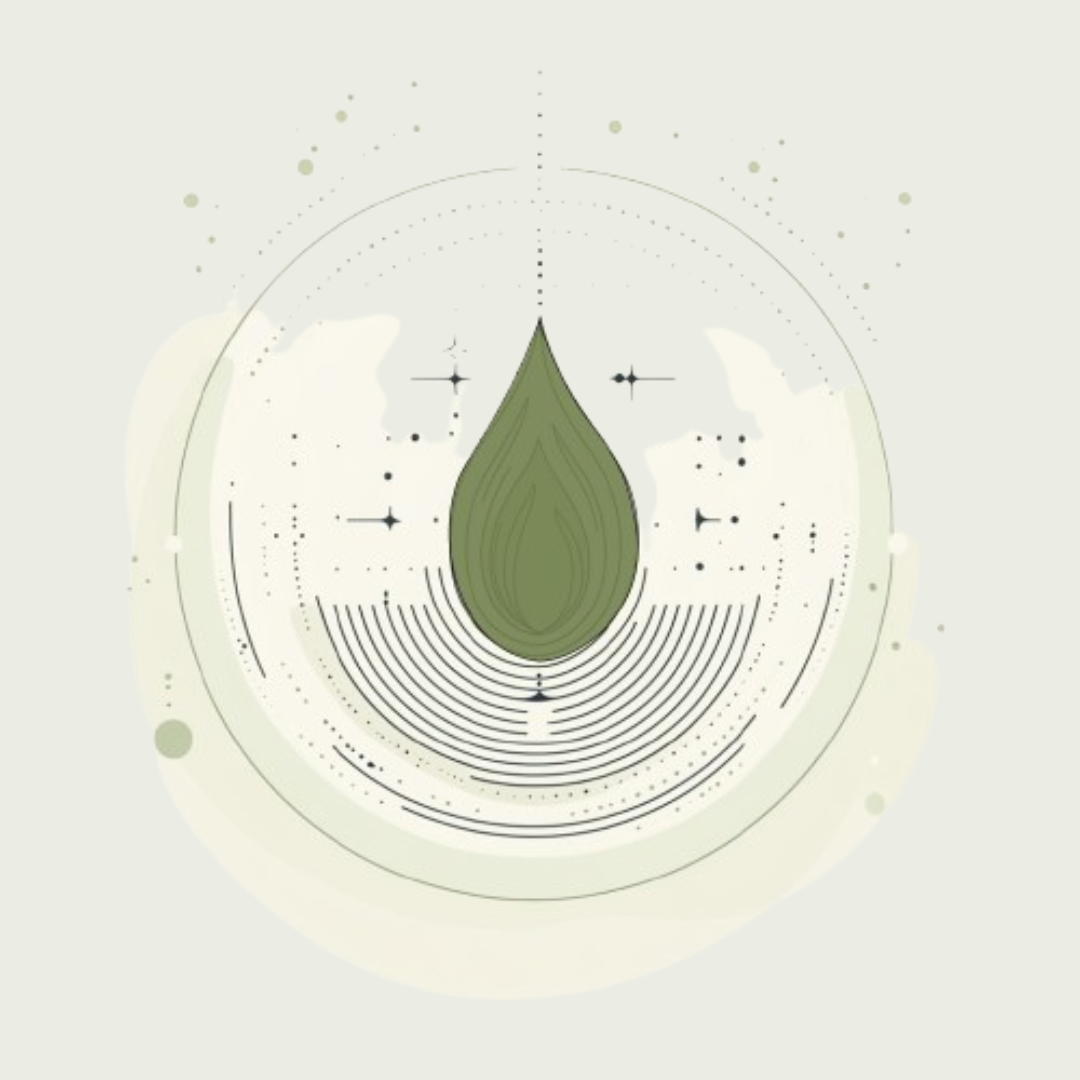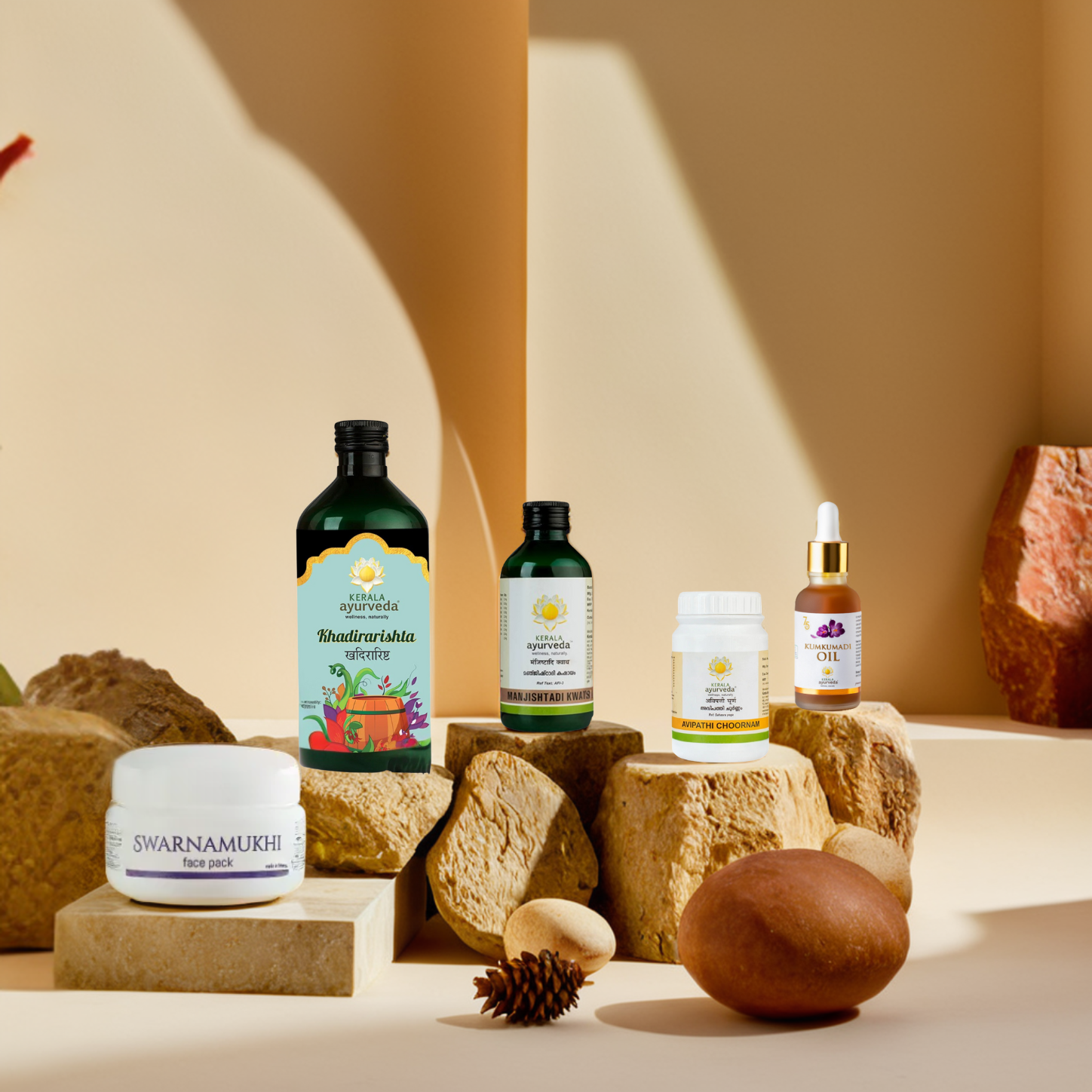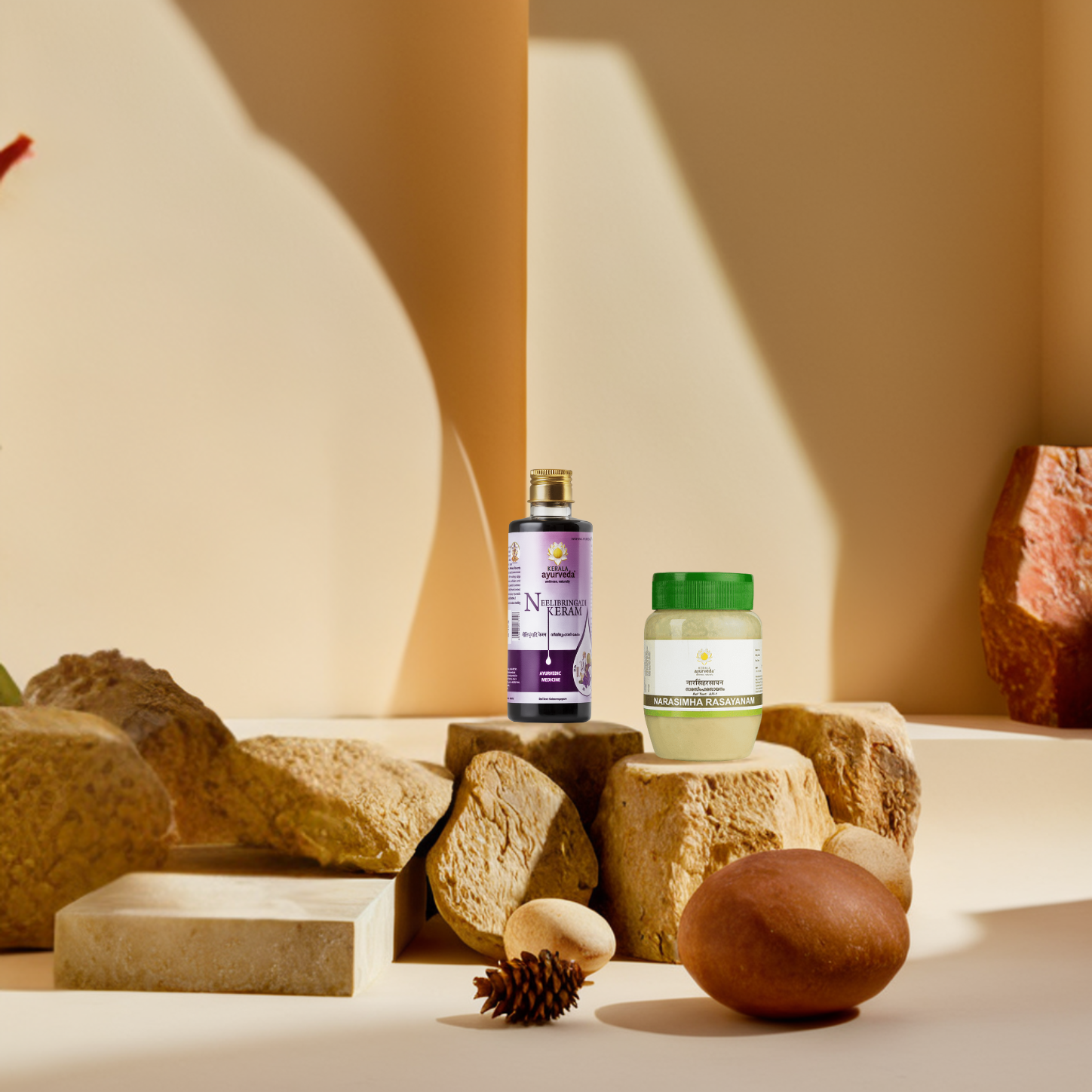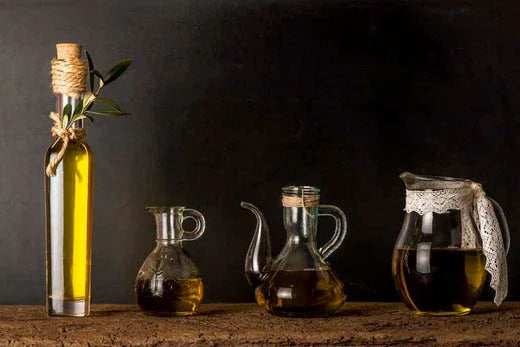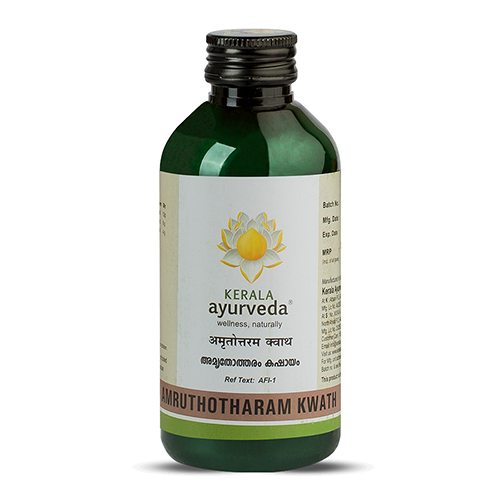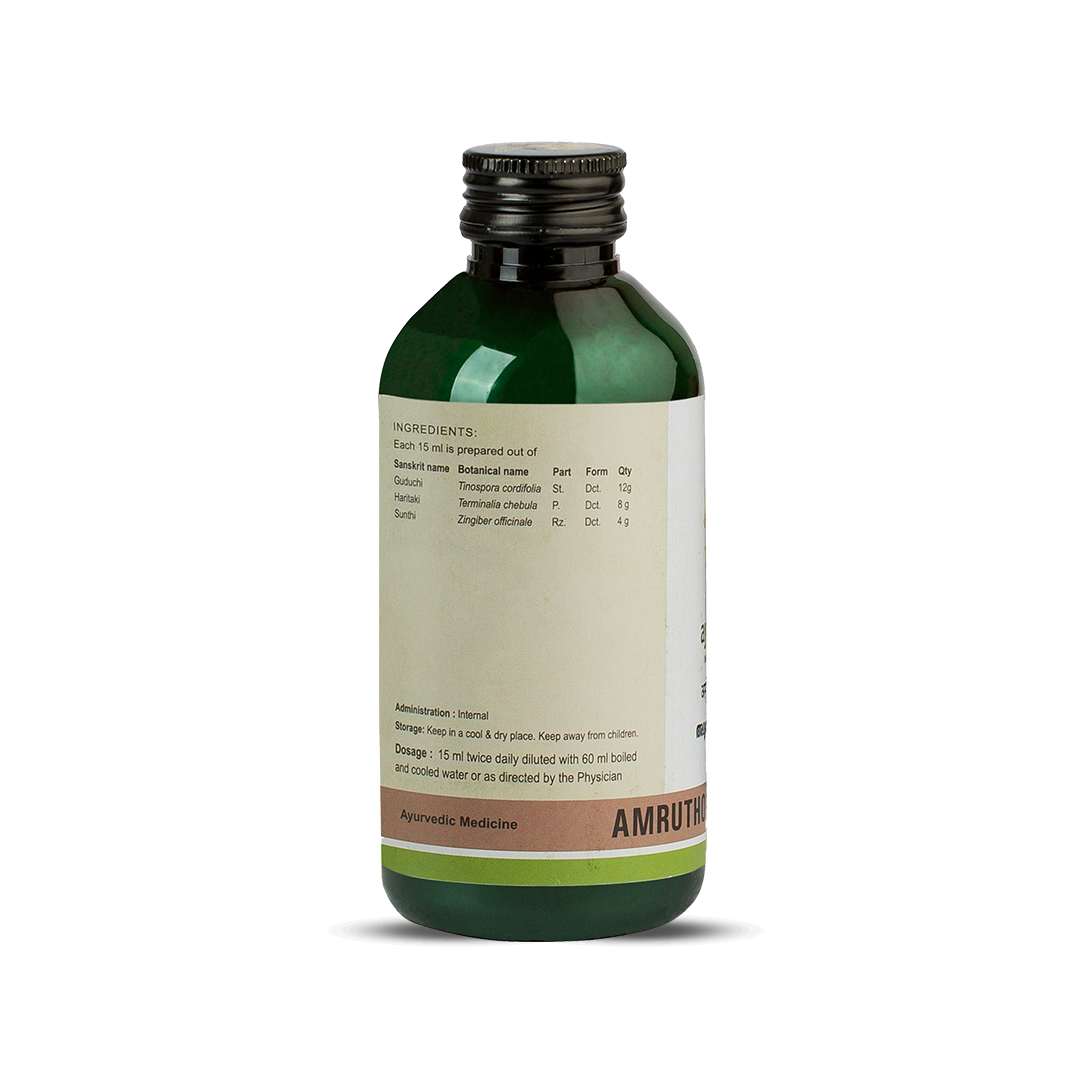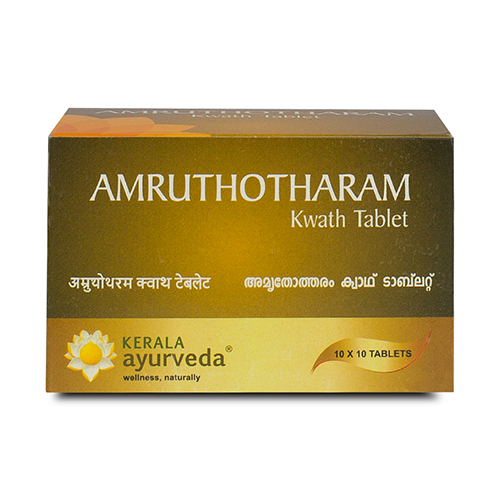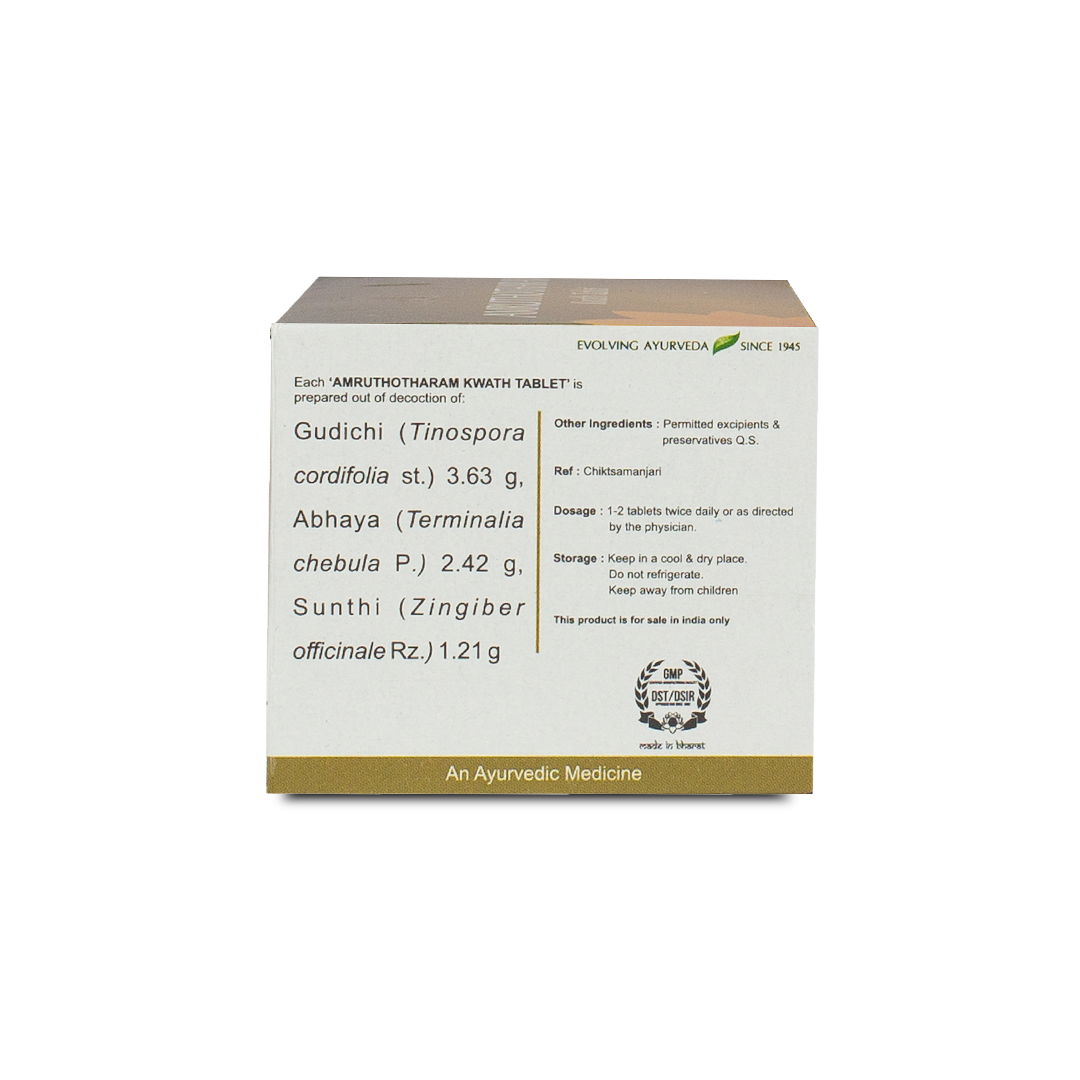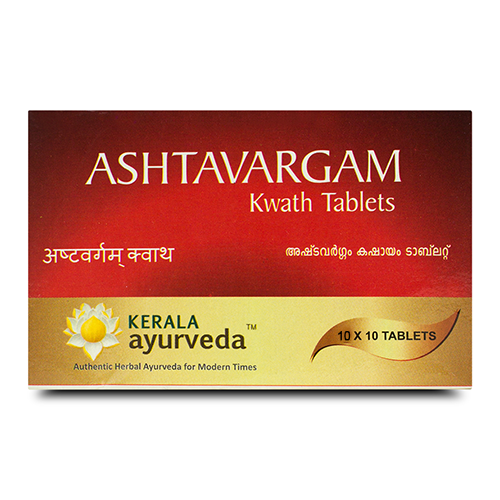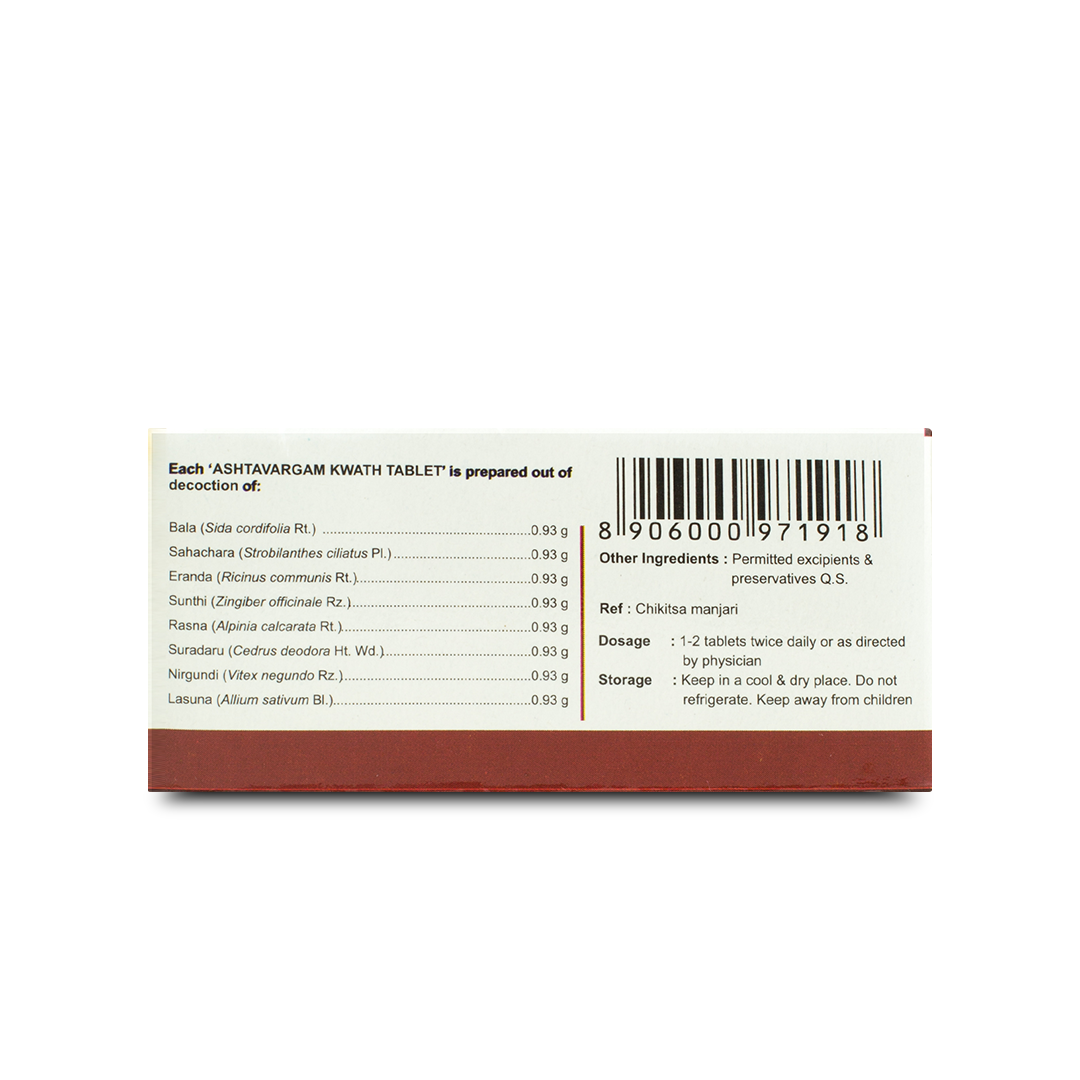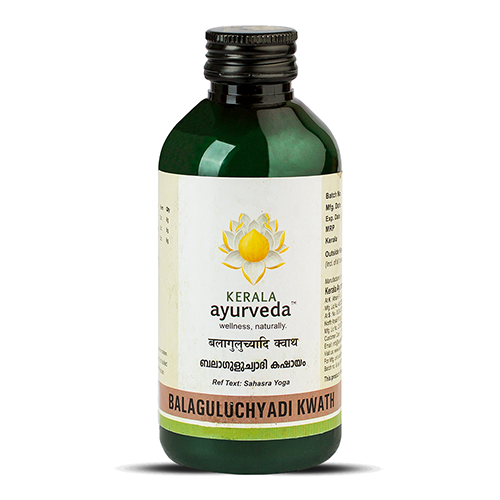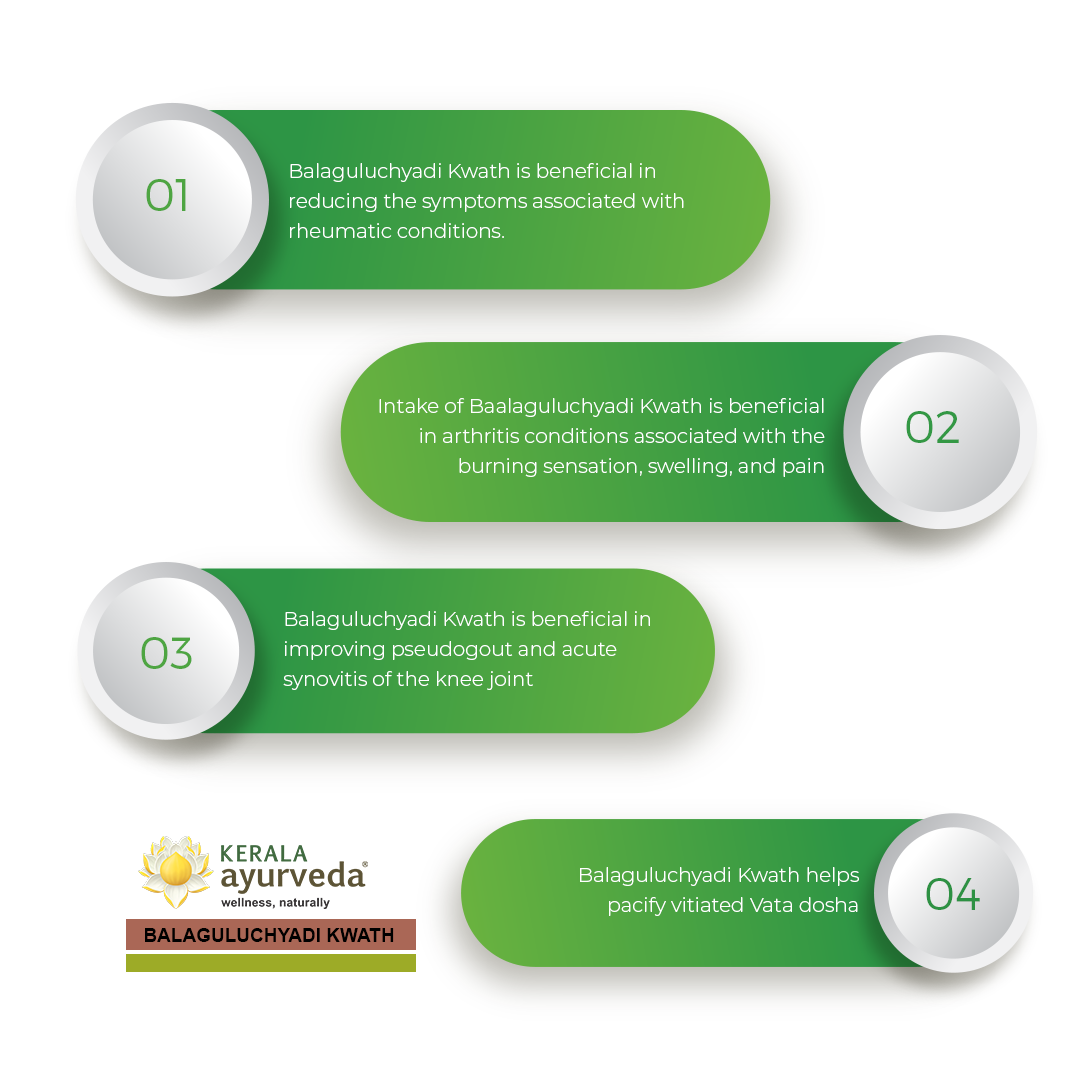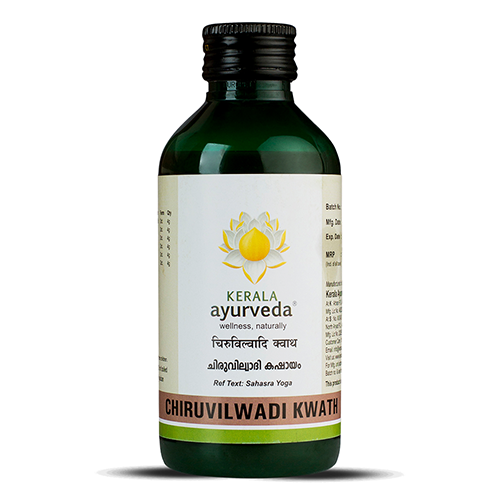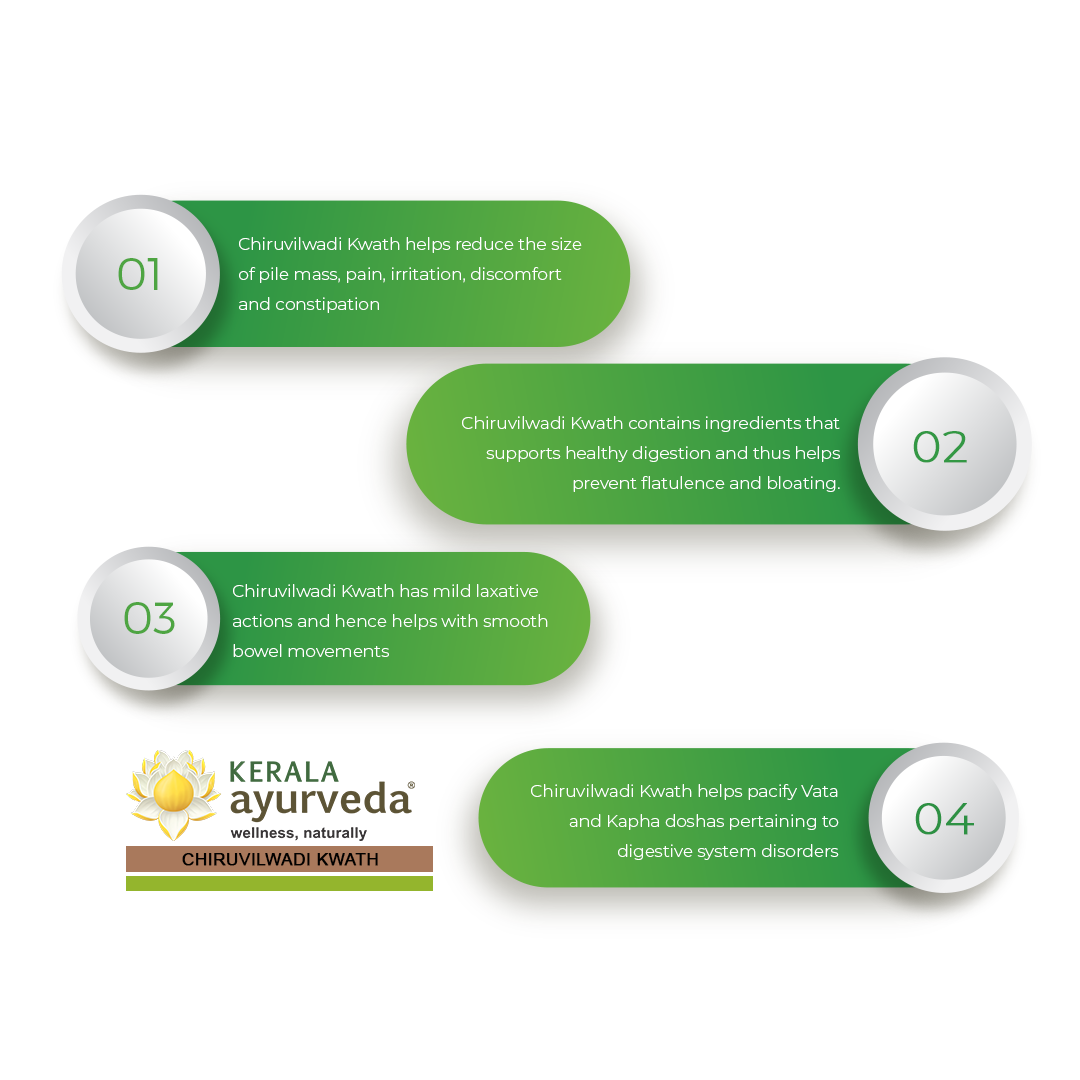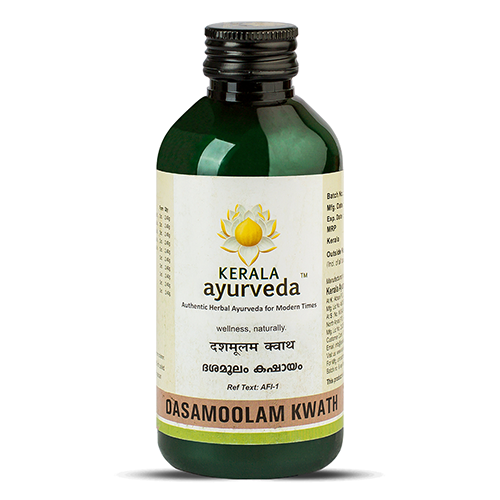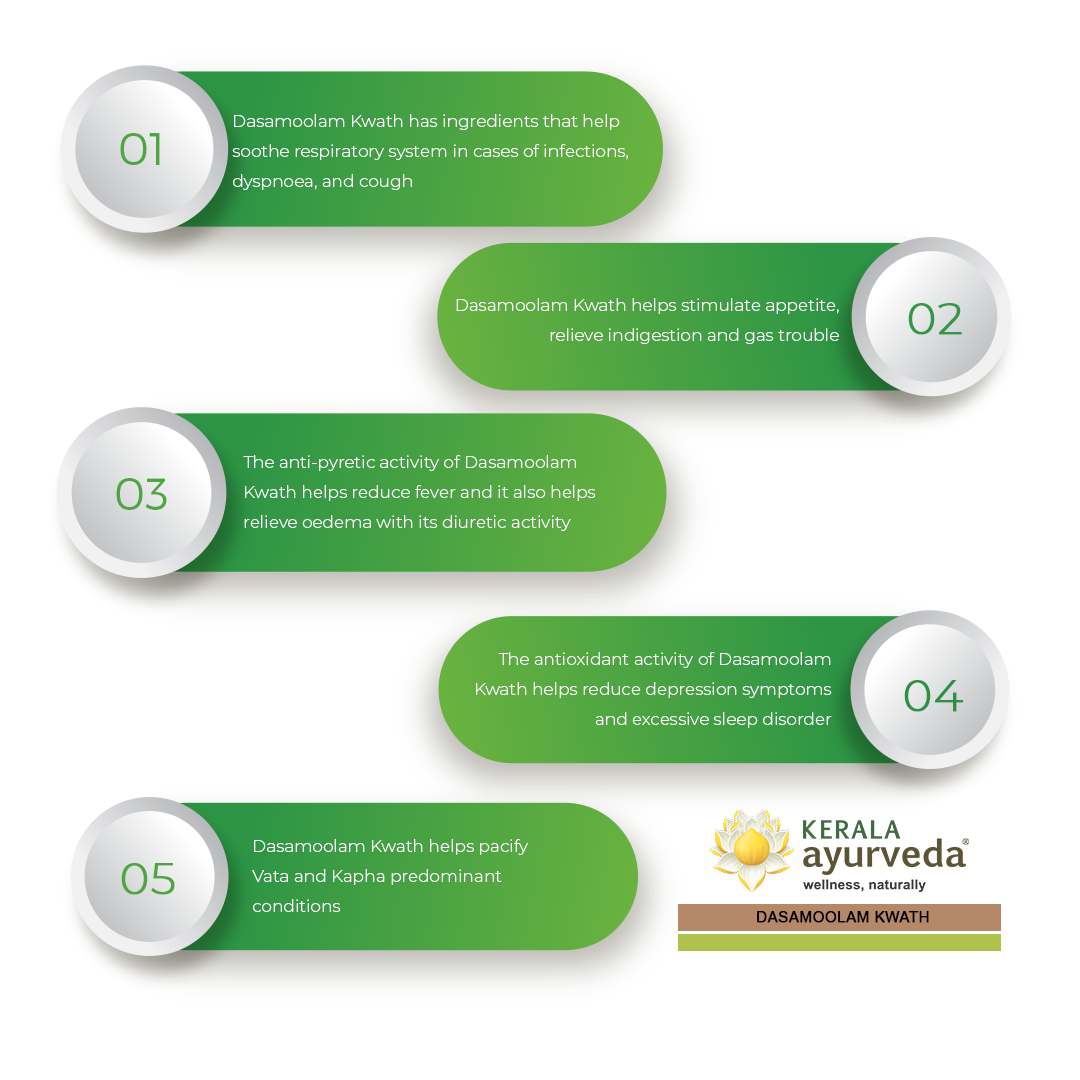Highlights
Water makes 80 – 90 % of the total weight of a plant. Water acts as a solvent to transport plant nutrients. Plant roots absorb nutrients from the soil, only when these nutrients are dissolved in water. Water acts as the medium to transport the nutrients from the plant roots to all of its parts. Water also plays a major role in photosynthesis. The nutrients prepared by photosynthesis are transported to all parts of the plant by water medium.
From the germination of seeds to the growth of the plant, water plays a major role.
Ayurveda uses natural herbs as medicine. The raw herb as such cannot be consumed. It needs to be converted into a suitable dosage form. Since 90 percent of the herbs are composed of water, ancient ayurvedic masters thought of using a water-soluble medium as the dosage form.
To prepare a water-soluble extract of an herb, the herb powder can be kept immersed in water. This is a diluted form of passive extraction.
The water-soluble extract can also be prepared by immersing herb powder in hot water. This is again a diluted form of passive extraction.
The ancient masters were in search of a method to extract the maximum amount of water-soluble herb chemicals. So, they boiled herbs with water. With this method, the maximum amount of extract was generated. Such a dosage form is called Kwath or Kashayam.
How to prepare Kwath / Kashayam?
- Take the suitable herb in dry, coarse powder form – 1 part
- Add 16 parts of water and boil it.
- While boiling, the useful bio-actives from the herbs get transferred to the water medium.
- Boiling is continued until the total quantity of water is reduced to 1/8th.
- This is then filtered and used afresh. This is the Ayurvedic Kwath.
For example, 10 grams of coarse powder of herbs are added with 160 ml of water and boiled till the water quantity reduces to 20 ml, filtered.
Rules for preparing Kwath
- Always use the wide-mouthed vessel, Iron/steel. This helps in quick evaporation of boiling water.
- Do not close the lid. This is to ensure water reduction by evaporation.
- Stir the contents continuously to avoid charring by the herb particles settling down at the bottom of the vessel.
- Boil in the mild fire. (once after the water starts boiling, continue on ~90 degree Celsius.) Boiling at a very high temperature can damage the plant chemicals.
- Use coarse powder as much as possible. Using coarse powder helps in the easy filtering of kashaya. Fine herb powder can lead to precipitation of fine particles in the end product.
- Kashaya is administered afresh, in mild hot condition.
Soaking the herbs in water
- Some people advise soaking the Kashaya herbs overnight.
- This is a good idea if Kashaya is made in bulk. This makes the extraction of chemicals from the herb to the water medium very easy.
- But some herbs such as fresh Brahmi, Bhringaraja or Shatavari may get spoilt if soaked overnight.
Dose of Kashaya
- Traditional dose: 50– 100 ml in a divided dose per day.
- Market available Kwaths are concentrated. Hence, they are administered in a dose of 10 – 20 ml, mixed with an equal quantity of water.
Time of Kashaya administration
- Ahara Rasa pake Sanjaate – after the digestion of food.
- Based on specific disease condition Kashayams can be administered before or after food.
Additives for Kwath
Sometimes, while administering, Kwath is added with certain additives or co-drinks. This helps to enhance the effect of Kwath and make the Kwath more suitable for the particular disease.
For example, Kwath added with honey, for the added benefits of Honey.
If honey is to be added –
- In Vata Dosha disorders such a joint/neurological disorder, the quantity of honey is 1/16thof the dose of Kashaya.
- For Pitta Dosha disorders such as hyperacidity, gastritis, liver disorders, etc., the quantity of honey is 1/8th part of Kashaya
- For Kapha Dosha disorders, such as obesity, cold, cough, etc, the quantity of honey is 1/4th part of Kashaya
Herbal powders such as Cumin, Guggulu, Kshara, Salt, Shilajit, Asafoetida, Ginger, black pepper, long pepper, etc are added to accelerate the absorption of Kwath. They also boost digestion and metabolism in the patient. The dose of such powders is 3 grams, per 48 ml of Kwath.
Liquids such as milk, ghee, jaggery, oil, cow urine, etc. are added in a dose of 12 ml, to the 48 ml of Kwath.
Uses of Kashaya
- For oral administration
- For washing eyes (Triphala Kashaya – used for treating eye infection)
- For dripping or washing wounds (Triphala Kwath, Panchavalkala Kashaya – These cleanse the wounds and cause quick wound healing)
- For mouth gargling – ginger decoction with honey to cleanse throat.
- For Basti – enema treatment. For example, Dashamoola kwath is mixed with many other ingredients and administered as enema for the treatment of neurological Vata imbalance disorders.
- To prepare other medicines such as herbal ghee and oils, Avaleha – herbal jams, Arista – fermented liquids, Ayurvedic syrups, and tablets.
Advantages of Kwath
- Easily digested and absorbed
- Readily available for therapeutic action
- Very efficacious – It is very easy for the stomach and intestines to absorb water-soluble components. Hence, Kashaya gets quickly absorbed leading to quick medicinal action.
- A wide variety of herbs can be converted into kashaya for a wide variety of diseases.
- It is useful to prepare secondary dosage forms (such as ghee, oils, Arista, Syrups, etc)
Examples of Kwaths
Kerala Ayurveda Patolamooladi Kwath – Used for the treatment of fever, viral infections, and liver disorders.
Kerala Ayurveda Dhanadanayanadi Kwath – Used for treating neurological diseases of Vata origin such as hemiplegia.
Kerala Ayurveda Elakanadi Kwath – Used for the treatment of cough, cold, bronchial asthma, chronic bronchitis.
Kerala Ayurveda Musleekhadiradi Kwath – Used for the treatment of gynaecological conditions such as leucorrhoea, menorrhagia.
Kerala Ayurveda Chiruvilwadi Kwath – Used for the treatment of haemorrhoids, fissure, fistula and other ano-rectal conditions.
Kerala Ayurveda Varunadi Kwath – Used for the treatment of obesity, headache, indigestion, etc.
FAQ's
1. Is it safe to consume Kwath?
Yes! Made with the goodness of powerful herbs and other natural ingredients, Kwaths are safe for consumption and can help you maintain your health and wellness. However, it is important to consume a Kwath that is suited to you in order to experience the benefits. An Ayurvedic doctor will be able to prescribe the right Kwath for you.
2. How long should I use Kwath?
You will need to consume the Kwath until your health concerns start to dissipate. An Ayurvedic doctor will be able to guide you regarding how long you should take the formula.
3. What is Kwath powder?
If you’re wondering what is Kwath in Ayurveda, or Kwath powder, in particular, they’re herbal powders of Ayurvedic significance enriched with the goodness of herbs. This powder is used to prepare Kwath or Kashayam that is often taken internally to address various health ailments, enhance the digestion process, and boost immunity.
4. Is Kwath good for health?
There are several health benefits and other advantages of taking Kwath regularly. They include:
- It’s given for oral administration since its easily digested and absorbed encouraging quick medicinal action
- It’s very gentle and easy on the stomach and the intestines
- Several varieties of herbs can be used to prepare different Kashayam for treating several diseases
- They can be used to prepare secondary dosage forms, including herbal ghee, Avaleha, herbal jams, syrups, fermented liquids, and to prepare Ayurvedic tablets
- It can be used for gargling and cleansing the throat
- It can be administered for enema treatment
5. Which Ayurvedic medicine is best for weight management?
Varunadi Kwath and Triphala Kwath are classical formulations that help you manage healthy weight naturally. They aid in natural detoxification and balance Kapha and Medas (adipose tissue). When these Kwaths are used in conjunction with a healthy diet and regular exercise or yoga, they can help regulate metabolism and maintain a normal, healthy weight. Since not all Kwaths have the same benefits, make sure to consult an Ayurvedic doctor to understand which Kwath will suit you.


